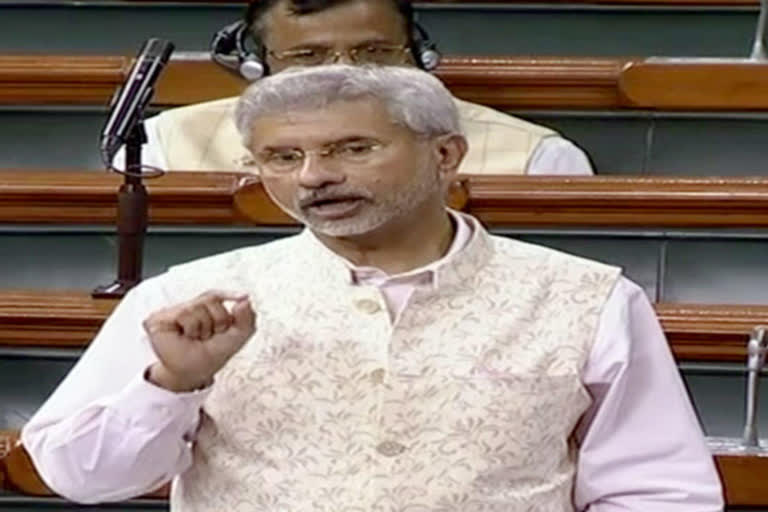New Delhi:External Affairs Minister S Jaishankar on Thursday said that a very detailed tracking procedure was in place to prevent the spread of coronavirus and untested people cannot be brought back to the country in a very severe epidemic situation as the nation's health security has to be ensured.
The minister, who was replying to queries of members on his statement concerning Indians stranded in Iran due to COVID -19, said that India has not imposed a ban on foreign nationals coming to the country, but added that if people from certain countries come, they have to go through quarantine.
"I want to clarify that India has not imposed a ban. India has said that if people from certain countries who are coming here, they have to go through quarantine. In certain cases, compulsory quarantine and in some cases, discretionary quarantine - and Indian citizens, who are coming back, will obviously come back to quarantine conditions if that is required," he said.
Referring to the issue of tracking those who come in, he said that there is a very detailed tracking procedure.
"In fact, the group of ministers has seen every patient who was tested positive and has tracked hundreds of people who have been in contact with that patient. It is not that we are only quarantining. There is a very detailed tracking procedure in place and it is because of that we have been able to keep it to the limit that we have," he said.
Read: IAF aircraft brings back 58 Indians from coronavirus-hit Iran
Responding to concerns of DMK member TR Baalu, he said there were no coronavirus cases so far among any of the Indian fishermen in Iran but stated that they have difficulty in getting food and other things.
"Our consulate is in touch with them and will continue to be in touch with them. We are monitoring the situation and we are setting up a nodal centre to check their welfare and welfare of the other people," he said.
The minister said that the government was helping the people who were stranded at airports. "We are preventing a sense of panic," he added.
Jaishankar said that the government has kept in abeyance certain categories of visas for certain countries where there is a prevalence of coronavirus.
"Ours is not the only country that has done that. There are a lot of other countries that have also done that. We were among the earliest to do it," he said.
The External Affairs Minister also said that steps taken were decided on the basis of situation in different countries, adding that the central government has to prioritise.
"We have to see where the problem is more severe and what kind of people are affected. For example, pilgrims are affected because they live in conditions where the spread of disease is very possible, students are affected because the dormitories are closed," he said.
"We have to see where we should give the attention and where the resources should be given," he further said.
Referring to concerns raised by National Conference member Hasnain Masoodi about delay in evacuation of Indians from Iran, Jaishankar said, "There has been a very difficult situation in Iran because their own system is under severe pressure."
"We first tried to get everybody help in Iran. When we realised that this was not happening, we were required to send our medical team. We had to actually establish a clinic at Qom. We had to shift even that to Tehran and ask the people to go from Qom to Tehran because that was the compulsion on us there. So, there has been no lack of sensitivity to the situation of people but please understand that it is a very difficult situation in Iran and we are working on it," he said.
